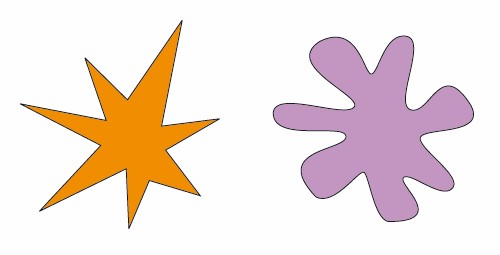To recap: synesthesia is a condition in which neurological parts of the brain are connected in such a way that experiencing one sensation triggers the response of another. Scientists aren't entirely sure what causes synesthesia, but somehow, senses are linked. For example, a person with synesthesia might see purple whenever they eat chocolate, or hear a violin sound whenever they touch something fluffy. There are more than 60 reported different types of synesthesia, but scientists have only studied a few.
One of the most common types is color-grapheme synesthesia, which is when a person percieves a color when they read a certain letter or number, like the number three might be purple or the letter s might be red. Another moderately common type is number form, which is when numbers and times have different specific spacial locations.
Synesthesia is thought to run in families, and often is something children are born with; however, strokes, seizures, brain damage, drug use, and other potentially brain-effecting things can sometimes cause synesthesia. For Daniel Tammet, he had a bunch of epileptic seizures when he was four that probably caused his own synesthesia.
Synesthesia also is thought to be a part of the root of lauguage. There was a study in which participants were shown two shapes:
and asked which one was the "bobo" and which was the "kiki". Almost every single time, they said that the shape on the left was the kiki and the shape on the right was the bobo. The study was done before with the words "maluma" and "takete", with the same results. The sharper sounding word goes with the sharper sounding shape, and the rounder word goes with the rounder shape. This association, although not technically synesthetic, is based on the combination of sound and shape, which is a type of synesthesia. In the beginning of language, synesthesia and synesthetic connections could have caused things to be named the way they are because of how they sound. Words that have the short "i" sound tend to be words like "little" or "quick", because the short "i" sound sounds small. Words like "great", "grand", or "God" all have a hard "g" sound, which sounds big and important. If you think about it, of course that makes sense because that's just the way it sounds. "G" sounds large and grand. "I" sounds small. This is evidence of synesthetic roots at the basis of our understanding of words.
In addition, expressions like "loud shirt", "bitter wind", and "cutting words" could be synesthetic as well-- they combine more than one sense.
If you're still interested, there's a lot of stuff about it on the internet that's really cool. This is a good summary of it, if you like videos better:
There's an official organization group thing for people with synesthesia, called The Synesthesia Battery.
It's really cool.
Synesthesia is just so fascinating to me for a lot of reasons, but mostly because there's such a huge variety. Some people see sounds when they hear music, or associate different personalities with numbers and letters. There are just so many different types, and scientists haven't even found them all. Synesthesia could also be really important to scientists' current understanding of our perception of the senses and how the brain works. Or maybe this power could be harnessed and used for some purpose. I highly recommend looking it up if you have time.

No comments:
Post a Comment